Come Again Nigga Mr Krabs Template
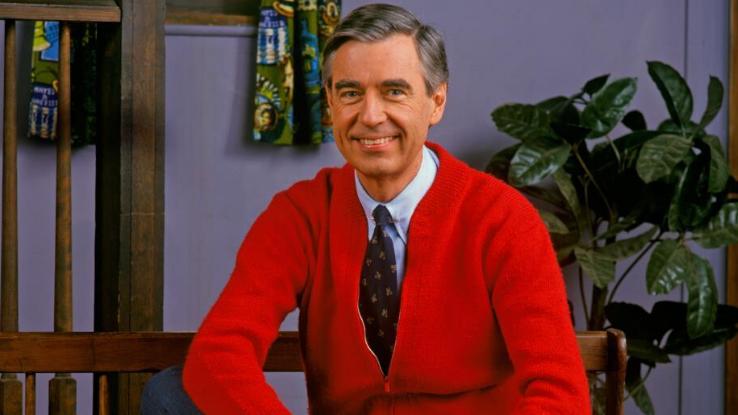
It's always a beautiful twenty-four hours in the neighborhood thanks to Fred Rogers. For 33 years, he was the creator, showrunner and host of the American television receiver series, Mister Rogers' Neighborhood. He transformed children'due south television, promoting kindness and speaking openly near children's emotional and physical concerns.
Rogers won the hearts of many people. He besides earned honorary degrees and awards, including the Presidential Medal of Freedom and a Lifetime Achievement Emmy. Was in that location anything this human being couldn't do? Read on to acquire more about the legacy of everyone's beloved "neighbor," Mr. Rogers.
He Hated TV, So He Changed Information technology
When Rogers turned on the tv set, he often saw violence and people demeaning each other. The inhumanity made him furious, then he decided to inspire change in the medium, believing at that place was a way to "nurture" viewers with a charming and gentle program. Every bit a result, he created Mister Rogers' Neighborhood to spread noesis and kindness. The show'south product and sets were bones, only that didn't stop it from becoming groundbreaking television.
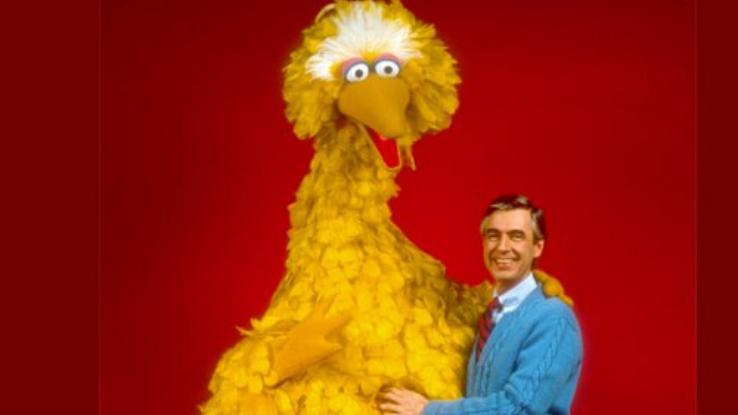
Non only did Rogers make a significant impact on kids and their parents, but he also influenced celebrities. One of his fans is Michael Keaton, who ended upwardly hosting a lovely Mr. Rogers documentary called It'south You I Like. Tom Hanks also adores Rogers and portrayed him in the 2019 moving picture A Cute Day in the Neighborhood.
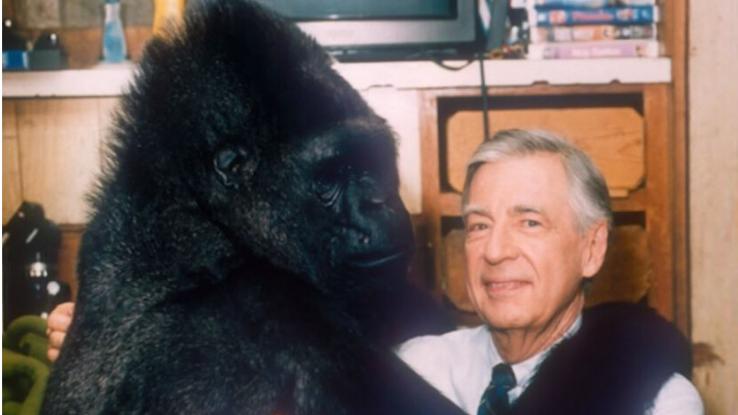
1 of Rogers' biggest fans wasn't even man. Koko, the Stanford-educated gorilla who knew ii,000 English words and ane,000 words in American Sign Language, loved him too. When Rogers met her, she instantly welcomed him with open arms and took off his shoes (the aforementioned way he does on the show).
He Personally Responded to Every Letter of the alphabet from Fans
Rogers' daily routine included waking up at five every morning, praying, writing, studying, exercising and replying to all his fan mail. The prove's plan assistant, Heather Arnet, told the Pittsburgh Postal service-Gazette, "He respected the kids who wrote them. He never thought almost throwing out a drawing or letter. They were sacred."
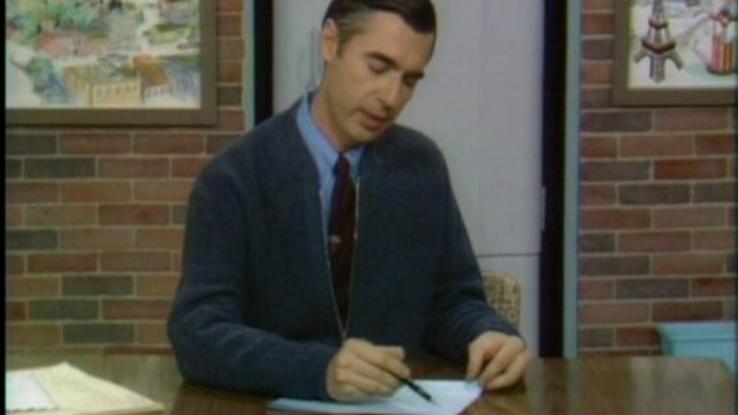
The messages were more than merely drawings and ramblings. Many children opened up to him virtually their personal issues, such as a loss in the family or other serious problems. Each day, Rogers received fifty to 100 messages from fans, and he wrote back to each ane. Today, the Fred Rogers Center in Latrobe, Pennsylvania, holds about ane million of those letters.
He Was a Gifted Musician
Later on attending Dartmouth College for ane yr, Rogers transferred to Rollins College. He graduated magna cum laude with a degree in music. As a talented songwriter, he created all the tunes for Mister Rogers' Neighborhood, which is more than than 200 songs. He too played the piano magnificently, and it shows in each episode.
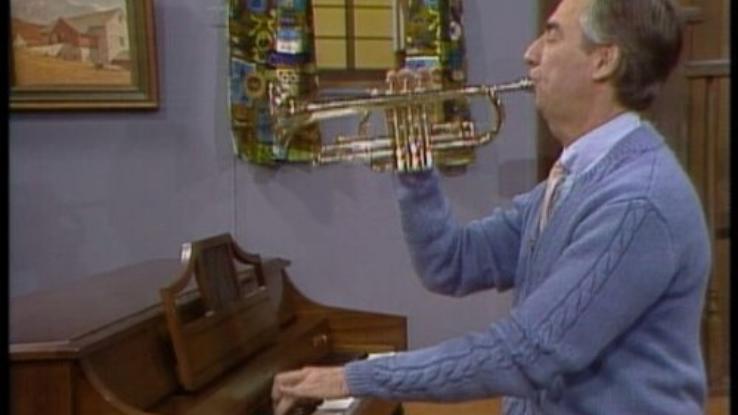
Rogers created music at a young historic period, even afterward getting bullied. When he was a kid, life was tough. He was shy and overweight, and his classmates teased him. "I used to cry to myself when I was alone. And I would weep through my fingers and make upward songs on the piano," recalled Rogers.
He Saved Public Telly and the VCR
In 1969, Rogers went to Washington D.C. to assist end budget cuts for public television receiver. He presented his case in front of the Senate, explaining how he could help children. "I experience that if we in public television can only brand it clear that feelings are mentionable and manageable, nosotros will have done a slap-up service for mental wellness," Rogers explained to the Senate. He did more than just stop the budget cuts by the end of the hearing. Within 6 minutes, he convinced the commission to provide $22 million in funding for public Television.
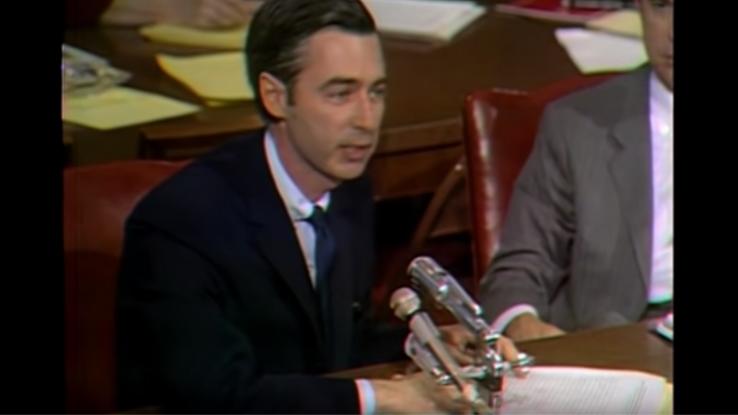
In 1984, Rogers supported the "fair employ" of media in a Supreme Court example. Some people considered recording Boob tube shows to exist copyright infringement. All the same, Rogers influenced the consequence, arguing that it was important for parents to exist able to record children'due south programs and watch them at more plumbing equipment times as a family.
He Cared Deeply About Others
From 1968 to 2001, Rogers fabricated sure to use his testify for adept. Focusing on children's emotional and physical struggles, he included many personal topics because he cared about his audience'south needs, concerns and happiness. He answered questions well-nigh everything from scary haircuts to fights with siblings to divorce and war.
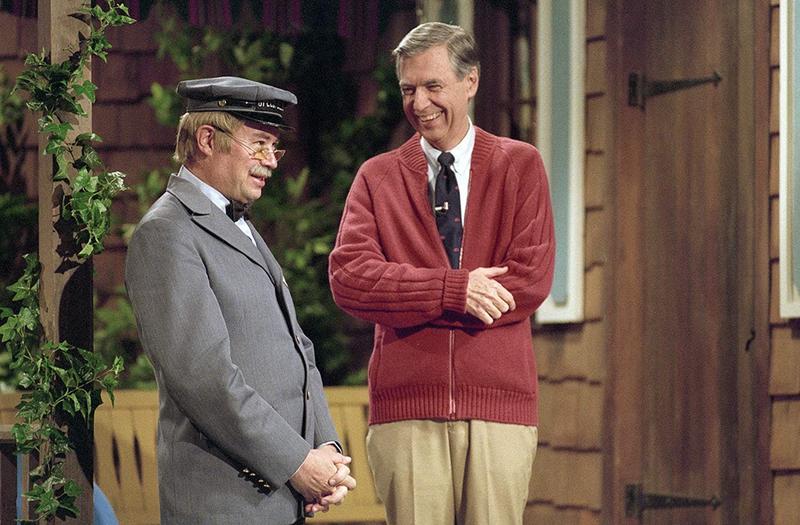
Rogers was well-prepared for his young audience because he attended the University of Pittsburgh'due south Graduate School of Kid Development. He also worked with a child psychologist for 30 years.
Many people establish Rogers caring, including reporters and limo drivers. During interviews, he asked reporters questions about their lives and got to know them. It wasn't uncommon for him to phone call them every once in a while to keep in touch. He did the same to 1 of his limo drivers. During 1 of the rides, the driver mentioned they were passing his firm. Wanting to see the driver's family, Rogers asked if they could stop by. The outcome was heartwarming. Rogers played the piano and talked to the family into the night.
Source: https://www.ask.com/entertainment/legacy-fred-rogers?utm_content=params%3Ao%3D740004%26ad%3DdirN%26qo%3DserpIndex
0 Response to "Come Again Nigga Mr Krabs Template"
Post a Comment